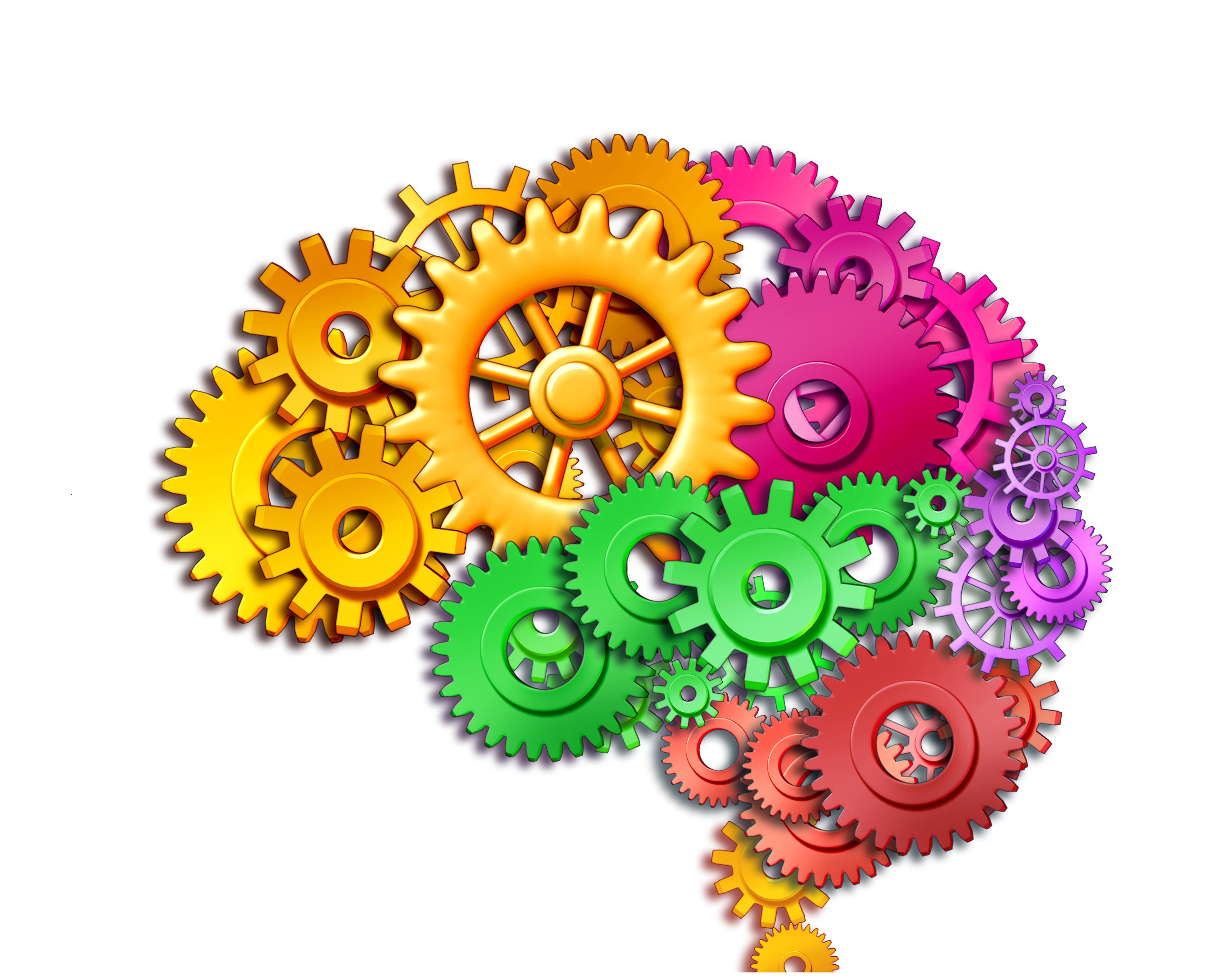Cognition
Some people with PTSD show cognitive alterations, which may interfere with an individual’s ability to function. Cognitive alterations have been found in attention, memory, planning, and social cognition. Some symptoms of PTSD may contribute to poor cognition. Symptoms of intrusions and hyperarousal can result in poor sleep, which in turn affects cognition. Symptoms of avoidance can result in poor attention. PTSD is also characterized by alterations in the hypothalamic-pituitary-adrenal axis, in neurometabolites, and in inflammatory response, which could all affect cognitive ability. Click on the links or the tabs below to access the information, or browse and search via the drop-down menu on the left.
Image: freshidea – Fotolia – stock.adobe.com

Attention
How is attention related to PTSD? Attention may be compromised in people with PTSD. Several tasks have been developed to assess attention. The most common task is The Stroop Colour Word Test, which presents colour names printed in an ink congruent to the colour name (e.g. blue), or incongruent to the colour name (e.g. blue). Participants are asked to either read the word or name the ink colour. A Stroop interference index is calculated by subtracting response times in the colour-naming condition from those in the incongruent condition. This serves as a measure of the attentional engagement, with more engagement…

Cognitive failures
How are cognitive failures related to PTSD? Cognitive failures or “slips” are experienced by everyone from time to time and represent a brief lapse in concentration in real world settings. They are influenced by factors such as personality, mood, stress, and time of day. People with psychological disorders are thought to be more vulnerable to cognitive failures, possibly due to increased problems with related cognitive processing such as attention. Several self-report tools have been developed to measure cognitive failures. One common tool is the Cognitive Failures Questionnaire (CFQ), which requires individuals to indicate how frequently they have experienced a list…

Episodic future thinking
What is episodic future thinking in PTSD? Episodic future thinking may be disrupted in people with PTSD. It refers to thought processes that contribute to the mental construction, imagination, or simulation of possible future events. Episodic future thinking plays a role in planning, problem-solving, coping, regulating emotional states and goal-motivated behaviour. What is the evidence for episodic future thinking in people with PTSD? Moderate to low quality evidence found no differences in episodic future thinking between people with PTSD and people without PTSD. August 2021 Image: ©Preechar Bowonkitwanchai – stock.adobe.com

Executive functioning
What is executive functioning in PTSD? Executive functions are a group of cognitive processes including control, mental flexibility, planning, inhibition, decision-making, initiation, abstraction, self-monitoring, and pursuit of goals. Executive functions are important in situations involving error correction and behaviour evaluation in response to environmental feedback. What is the evidence for executive functioning? Moderate to high quality evidence found poorer executive functioning in adults and children with PTSD compared to people without the disorder who were, or who were not, exposed to trauma. There were no significant associations between symptom severity and executive functioning. August 2021 Image: ©Gajus – stock.adobe.com

General cognition
What is general cognition in PTSD? Overall cognitive functioning may be disrupted in people with PTSD. Intelligence quotient (IQ) is derived from standardised tests used to measure general cognitive functioning. IQ is most commonly measured using the Wechsler Adult Intelligence Scale (WAIS). The WAIS is designed to measure all aspects of cognitive functioning and is divided into subtests measuring verbal IQ (verbal comprehension and working memory) and non-verbal IQ (perceptual organisation and processing speed). Other tests used to assess IQ include the Mini-Mental State Examination (MMSE), which assesses cognitive impairment; the National Adult Reading Test (NART), which assesses premorbid intelligence;…

Information processing
What is information processing in PTSD? Information processing may be disrupted in people with PTSD. It can be assessed using various tests that assess general processing and speed. The Wechsler Adult Intelligence Scale (WAIS) digit symbol coding test presents participants with paired numbers and symbols and when shown several numbers, participants must write down the missing corresponding symbols as quickly as possible. The Wisconsin Card Sorting Task (WCST) requires an ability to shift cognitive sets; participants are told to match stimulus cards containing varying coloured shapes, based first on colour, then quantity, then design. The participant is then given additional…

Language
How is language ability related to PTSD? Language may be altered in people with PTSD. Tasks designed to assess language ability include letter fluency tasks that assess the ability to generate words starting with a particular letter. Category fluency tasks assess the ability to name words within a specified category. Working memory is needed for both letter and category fluency as participants must organise and retrieve relevant information. Other tests designed to assess language include: Boston Naming task; Wechsler Adult Intelligence Scale (WAIS) comprehension (including the subtest information, similarities and vocabulary), WAIS verbal memory, verbal fluency, National Adult Reading Test…

Learning
What is learning ability in PTSD? Learning is the ability to acquire, or change existing knowledge, behaviours, or skills. This process may be disrupted in people with PTSD. There are two distinct forms of learning. The first is explicit (or declarative) learning, which occurs during a high level of consciousness regarding specific learnt content, for example, memorising information for an exam. The second is Implicit (or procedural) learning, which is less conscious and refers to learning that is gained from task performance, for example, juggling. Explicit verbal learning can be measured with the Hopkins Verbal Learning test, the California Verbal…

Memory
What is memory in PTSD? Memory involves encoding, storage and retrieval of information. Short-term memory is the ability to remember information after several seconds or minutes; and long-term memory is the ability to remember information over a longer duration. Semantic memory is memory for general facts, episodic memory is memory for personal events, prospective memory is memory for future actions, and retrospective memory is memory for past events. Working memory involves information being temporarily held as well as manipulated. What is the evidence for memory in PTSD? Moderate quality evidence finds small to medium-sized effects of poorer memory in people…

Social cognition
What is social cognition in PTSD? Social cognition may be disrupted in people with PTSD. It describes the ability to understand the actions and intentions of other people; the cognitive processes underlying social interactions that are used to guide behaviour. Social cognition is crucial for effective communication and relates to social competence and may predict work functioning. Aspects of social cognition may be altered in people with a mental illness, including theory of mind, social perception, emotion processing, emotion regulation, and empathy. Theory of mind refers to the ability to infer the mental states of other people. Social perception is…

Visuospatial ability
What is visuospatial ability in PTSD? Visuospatial ability refers to a person’s capacity to identify visual and spatial relationships among objects. This ability may be disrupted in people with PTSD. Visuospatial ability is measured in terms of the ability to imagine objects, to make global shapes by locating small components, or to understand the differences and similarities between objects. Several tests have been designed to assess visuospatial ability. The Weschler Adult Intelligence Scale (WAIS) block-design subtest requires subjects to use small blocks to recreate a larger block pattern. The WAIS picture arrangement subtest assesses perceptual skills and involves study participants…
Green - Topic summary is available.
Orange - Topic summary is being compiled.
Red - Topic summary has no current systematic review available.
